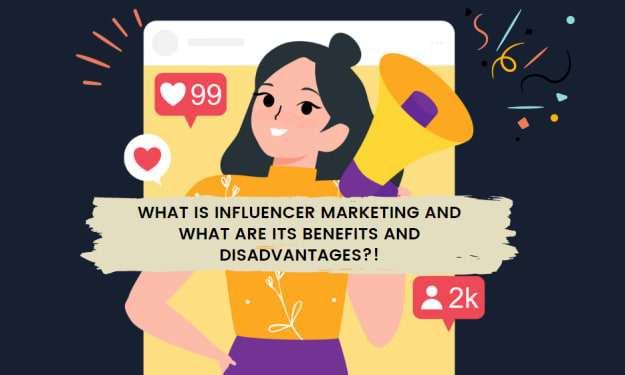
In today's highly competitive business landscape, establishing a strong online presence is essential for the success and growth of small businesses. Digital marketing has emerged as a powerful tool that can catapult a small business from obscurity to becoming a global phenomenon. By harnessing the potential of digital marketing strategies, small business owners can effectively reach their target audience, drive sales, and expand their brand visibility. In this article, we will explore the various aspects of digital marketing and how they can transform your small business into a thriving global entity.
Digital marketing encompasses a wide range of techniques and strategies aimed at promoting products and services through digital channels. It includes activities such as search engine optimization (SEO), pay-per-click advertising (PPC), content marketing, social media marketing, influencer marketing, email marketing, online advertising, analytics and data tracking, mobile marketing, customer relationship management (CRM), reputation management, and measuring return on investment (ROI). For small businesses, digital marketing presents a unique opportunity to level the playing field with larger competitors and establish a strong foothold in the market.
Building an Online Presence
To embark on a successful digital marketing journey, small businesses need to start by building a robust online presence. This begins with creating a professional website that showcases their products or services. The website should be visually appealing, user-friendly, and optimized for search engines. Small businesses can improve their search engine rankings and attract organic traffic by optimizing the website content with relevant keywords and providing valuable information to visitors.
Additionally, small businesses should leverage social media platforms to engage with their target audience. Platforms like Facebook, Instagram, Twitter, and LinkedIn provide opportunities to connect with potential customers, share updates, and build brand loyalty. Consistently posting relevant and engaging content on social media can help small businesses increase their online visibility and foster meaningful relationships with their audience.
Search Engine Optimization (SEO)
SEO plays a crucial role in improving a small business's online visibility and driving organic traffic. By understanding the basics of SEO and implementing effective strategies, small businesses can enhance their search engine rankings and attract relevant visitors to their websites. This involves conducting thorough keyword research to identify the terms and phrases that potential customers are using to search for products or services. By optimizing website content, meta tags, headings, and URLs with these keywords, small businesses can increase their chances of appearing higher in search engine results.
Furthermore, small businesses should focus on both on-page and off-page optimization techniques. On-page optimization involves optimizing individual web pages to make them more search-engine friendly. This includes optimizing title tags, meta descriptions, headings, and image alt tags. Off-page optimization, on the other hand, involves building high-quality backlinks to the website from reputable sources, which can help improve its authority and credibility in the eyes of search engines.
Pay-Per-Click Advertising (PPC)
PPC advertising offers small businesses a highly targeted and cost-effective way to reach their desired audience. With PPC, businesses only pay when someone clicks on their ad, making it a measurable and scalable advertising model. Small businesses can set up PPC campaigns on platforms like Google Ads and Bing Ads, choosing relevant keywords and creating compelling ad copy. By carefully monitoring and optimizing their PPC campaigns, businesses can maximize their return on investment and drive qualified traffic to their website.
Content Marketing
Content marketing involves creating and distributing valuable and relevant content to attract and engage a target audience. For small businesses, content marketing can be a powerful tool for establishing thought leadership, building brand awareness, and driving customer engagement. This can be achieved through various channels, such as blog posts, guest posting on industry websites, and email marketing campaigns. By consistently delivering high-quality content that addresses the needs and interests of their target audience, small businesses can position themselves as industry experts and gain the trust of potential customers.
Social Media Marketing
Social media marketing allows small businesses to connect with their audience on a personal level and build a community around their brand. By choosing the right social media platforms that align with their target audience's preferences, businesses can create a social media strategy that effectively communicates their brand values and engages their followers. Consistently posting engaging content, responding to comments and messages, and running targeted social media campaigns can help small businesses expand their reach and foster meaningful connections with their customers.
Influencer Marketing
Influencer marketing involves partnering with influential individuals or content creators to promote products or services. For small businesses, collaborating with relevant influencers can provide access to a wider audience and help build brand credibility. By identifying influencers who resonate with their target market and developing authentic partnerships, small businesses can leverage the influencer's reach and influence to drive brand awareness and increase conversions. Measuring the success of influencer campaigns through key performance indicators (KPIs) such as reach, engagement, and conversions is crucial to determining the effectiveness of the partnership.
Email Marketing
Email marketing remains one of the most effective ways to nurture leads, build customer relationships, and drive sales. Small businesses can start by building an email list of interested prospects and existing customers. By crafting compelling email campaigns that deliver value, small businesses can keep their audience engaged and informed about new products, promotions, or industry insights. Analyzing email marketing metrics such as open rates, click-through rates, and conversions can provide valuable insights for optimizing future email campaigns and improving overall ROI.
Online Advertising
In addition to organic strategies, small businesses can leverage online advertising to expand their reach and target specific audiences. Display advertising allows businesses to showcase their ads on relevant websites or within mobile apps, reaching a broader audience. Remarketing campaigns target users who have previously interacted with the business, reminding them of the products or services they showed interest in. Affiliate marketing involves partnering with other websites or influencers who promote the business's products or services in exchange for a commission. By carefully selecting online advertising channels and continuously monitoring performance, small businesses can optimize their online advertising efforts for maximum impact.
Analytics and Data Tracking
Small businesses need to implement analytics tools to track website and campaign data to make informed decisions and continually improve their digital marketing strategies. Tools like Google Analytics provide valuable insights into website traffic, user behaviour, and conversion rates. By setting up goals and tracking key metrics, small businesses can identify areas of improvement and make data-driven adjustments to their marketing efforts. Regularly analyzing data and making necessary optimizations will ensure that small businesses can effectively measure their success and achieve their marketing objectives.
Mobile Marketing
With the increasing use of mobile devices, optimizing digital marketing strategies for mobile platforms is crucial for small businesses. This includes ensuring that websites are mobile-friendly, with responsive designs and fast loading times. Developing mobile apps can also provide an additional avenue for businesses to engage with their customers and offer a seamless user experience. Additionally, small businesses can leverage SMS marketing to reach their audience directly through text messages, providing updates, promotions, or personalized offers.
Customer Relationship Management (CRM)
Implementing a customer relationship management (CRM) system can help small businesses streamline their interactions with customers and improve overall customer satisfaction. CRM systems allow businesses to track customer interactions, store important contact information, and provide personalized experiences. By utilizing CRM data, small businesses can segment their customers and tailor their marketing efforts accordingly. Personalizing customer interactions fosters a stronger connection with the audience and increases the likelihood of repeat business and customer loyalty.
Reputation Management
Maintaining a positive brand image is crucial for the success of small businesses. Online reviews and feedback can significantly impact a business's reputation. It is important for small businesses to actively monitor and respond to reviews and address customer concerns promptly and professionally. Small businesses can build a positive brand image that resonates with their target audience by providing exceptional customer service and actively managing their online presence.
Measuring Return on Investment (ROI)
Small businesses need to measure the effectiveness of their digital marketing efforts to ensure they are getting a return on their investment. By determining key performance indicators (KPIs) that align with their marketing objectives, such as website traffic, conversions, or customer acquisition cost, businesses can track and evaluate the success of their campaigns. Making data-driven decisions based on these metrics allows small businesses to optimize their strategies for better results and allocate resources effectively.
In today's digital age, small businesses have unprecedented opportunities to grow and expand their reach globally. By embracing digital marketing strategies and leveraging the power of the internet, small businesses can compete with larger players and establish themselves as industry leaders. Building a strong online presence, utilizing SEO techniques, engaging with customers through social media, leveraging influencer partnerships, and implementing email marketing campaigns are just a few ways that small businesses can transform from zero to hero in the digital realm.
About the Creator
Cekyrata
Only quality content: tips and trick in digital marketing






Comments
There are no comments for this story
Be the first to respond and start the conversation.